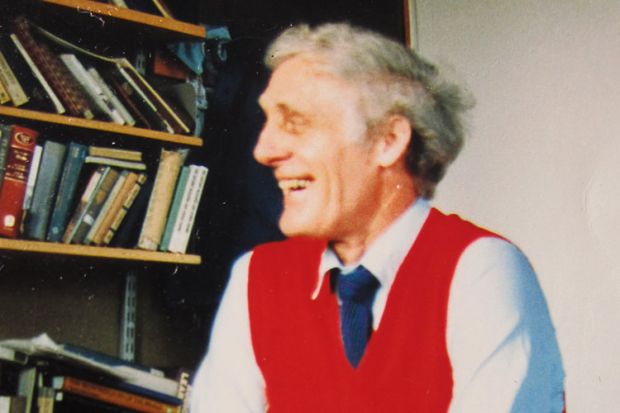Sandy Cunningham was born in Sunderland on 16 October 1928 and studied English at Durham University, followed by a BLitt at the University of Oxford. He taught at the University of Manchester (1954-58) and then became a lecturer at Durham (1958-63).
It was at this point that Professor Cunningham joined the new English department at the University of York as a founding member (1963-75). Appointed senior lecturer, he was later promoted to reader before becoming professor of English at the University of Leicester for the rest of his career, retiring and becoming emeritus in 1989. He served both as head of department and on the board of Leicester University Press.
Largely a specialist in the great writers of the 18th century, Professor Cunningham wrote Pope’s Rape of the Lock: Studies in English Literature (1961) and Samuel Johnson: The Vanity of Human Wishes; And, Rasselas (1982), and delivered the Warton Lecture on English Poetry at the British Academy (1979), although he also revealed a deep understanding of Elizabethan literature in his edition of Christopher Marlowe’s Tamburlaine the Great (1981).
In parallel with this, he was a significant poet right up to the end of his life and published three separate collections: Powers That be (1969), Tidings (2008) and Soundings (2014).
Joanne Shattock, emeritus professor of English at Leicester, remembered Professor Cunningham as “a charismatic and idiosyncratic lecturer” who “delighted undergraduate and wider audiences alike by his unstuffy style and his capacity to surprise as well as at times to baffle by his approach to a seemingly straightforward topic”.
She added: “The title of his inaugural lecture, ‘Of Giants and Eggshells’, signalled what was to follow. His last lecture, on Swift’s Gulliver’s Travels, was mischievously delivered from behind a table on which he had placed a china horse looking into a mirror.”
He was also, Professor Shattock continued, “a kind and inspiring man [who] would devote many hours to reading his colleagues’ work before publication, offering acute and helpful commentary”.
Yet despite “a brilliant and instructive mind”, she said, he was “completely without ‘side’: amusing and relaxed with his younger colleagues, one of whom recalls watching ‘Botham’s Ashes’ with him during lunchtime in the senior common room. When the match reached a crucial point at which both should have returned to their offices, Professor Cunningham thought nothing of designating this a historical moment which should not be missed, and both stayed on during the afternoon to witness the victory.”
Professor Cunningham died of pneumonia on 13 September and is survived by his wife, Eithne, one daughter, three sons and three grandchildren.




